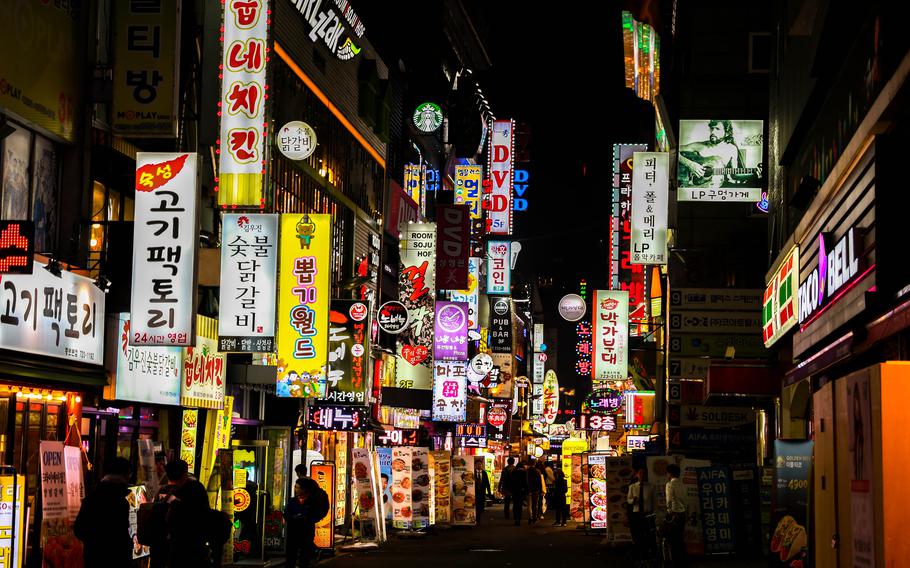
More than 75% of South Koreans felt a new social-distancing policy was needed due to vaccinations and decreased COVID-19 cases, according to a recent survey from Seoul National University. (Pexels)
South Korea loosened its COVID-19 social distancing measures Monday following “public fatigue” from the prolonged pandemic response and the increased number of vaccinations.
The government’s plan, according to the Ministry of Health and Welfare, is to ease restrictions over three steps, each lasting four weeks, followed by a two-week evaluation period. Each step will introduce new business hours, curfews and limits to public gatherings.
Public businesses in metropolitan areas have been typically open until 10 p.m. during the pandemic. Under the plan announced Monday, restaurants and cafes are allowed open for their normal business hours. Time restrictions and music bans at gyms and bathhouses were also lifted.
The Health and Welfare ministry described its step-by-step plan as “the roadmap for gradual return to normal,” with the goal of becoming “the better Korea.”
“Today is a day we take the first step toward a gradual return to normal life,” Health Minister Kwon Deok-cheol said during a public briefing Monday. “We have gone through so many great and small crises for about a year and 10 months since January of last year.”
The change comes as South Korea announced Monday that 75% of its population is vaccinated. The country reported 1,686 new infections the same day, down from the record-high of 3,273 daily cases in September.
More than 76% of the public felt a new social-distancing policy was needed due to the vaccinations and decreased cases, according to a recent survey from Seoul National University.
“Due to quarantine measures, such as long-term social distancing, the economic damage is accumulating to the self-employed, small business owners and the vulnerable,” said the ministry statement. It also listed social and cultural damages resulting from the pandemic, such as lack of education, the “corona blues” and lack of care.
U.S. Forces Korea, the military command responsible for roughly 28,500 troops on the peninsula, announced last month that the South Korean government would recognize proof-of-vaccination cards issued for U.S. service members.
Previously, business owners who restricted patrons based on their vaccination status were not obligated to accept vaccination cards issued by the U.S. Centers for Disease Control and Prevention. Under a new policy, health authorities will accept pre-approved vaccination cards for service members who were inoculated in the United States or at a military facility in South Korea.
“We’re getting close to the end of the pandemic, that’s for sure,” Army Col. Douglas Lougee, USFK’s command surgeon, told Armed Forces Network Pacific on Oct. 22. “Every vaccinated person brings us closer.”
Stars and Stripes reporter Yoo Kyong Chang contributed to this report.